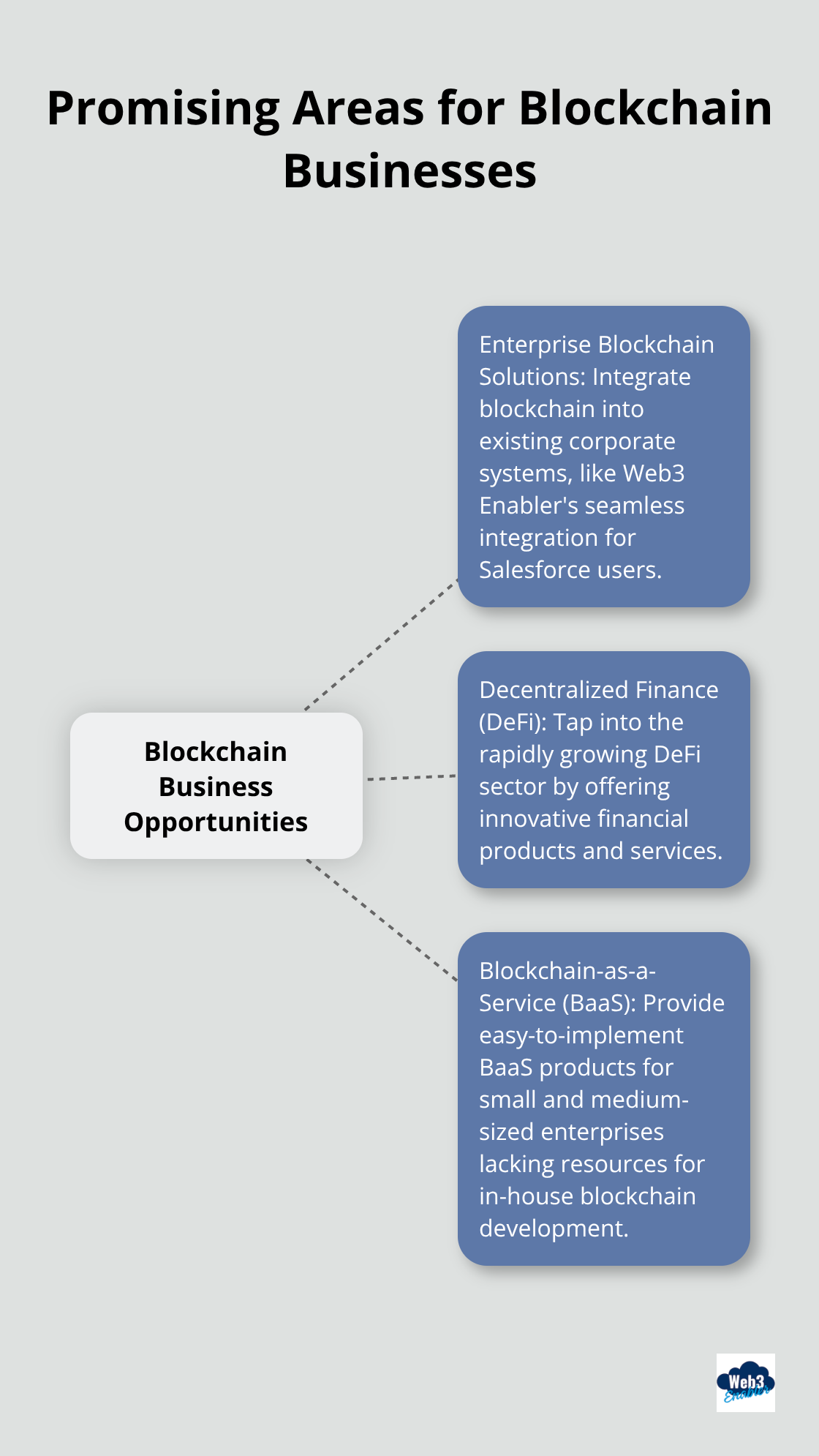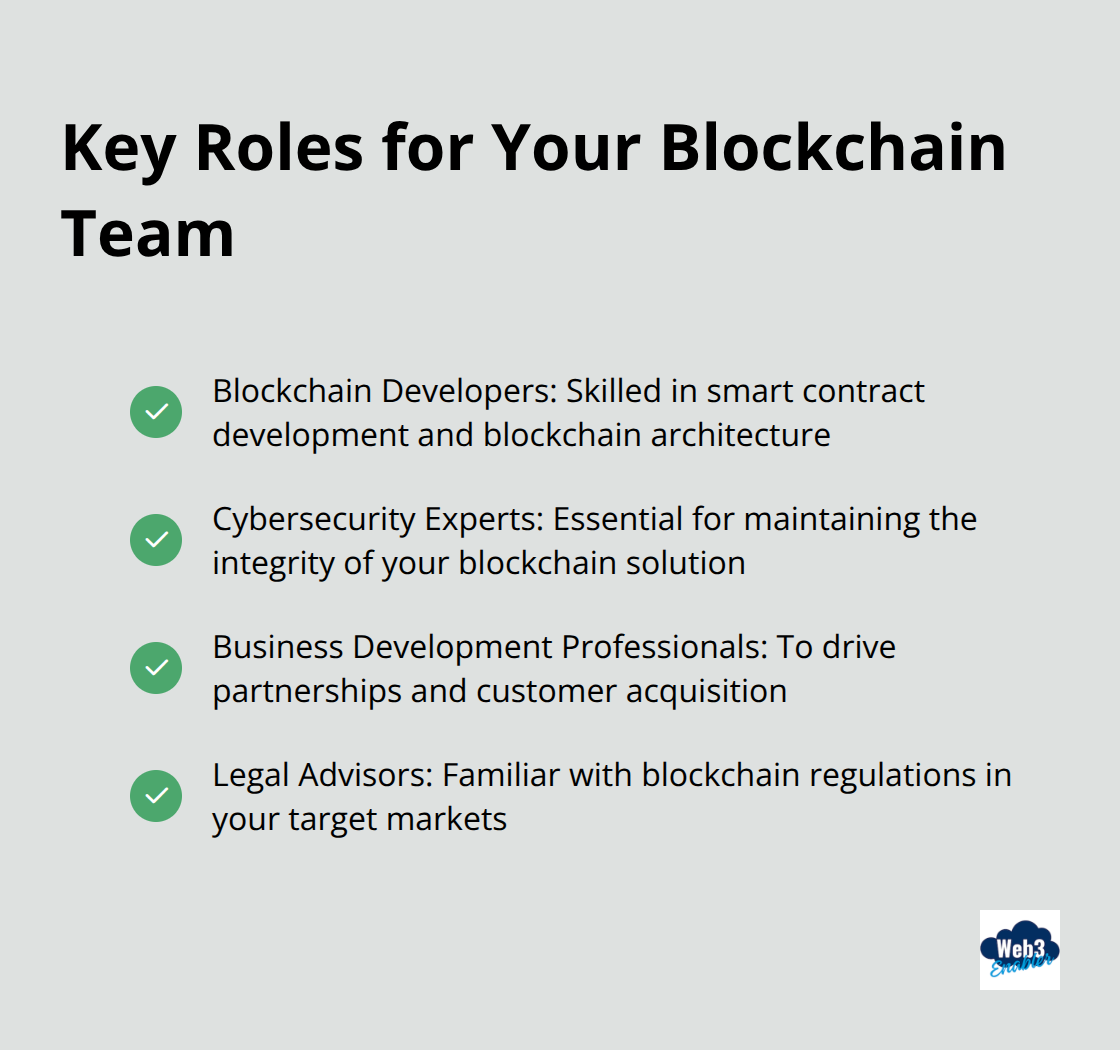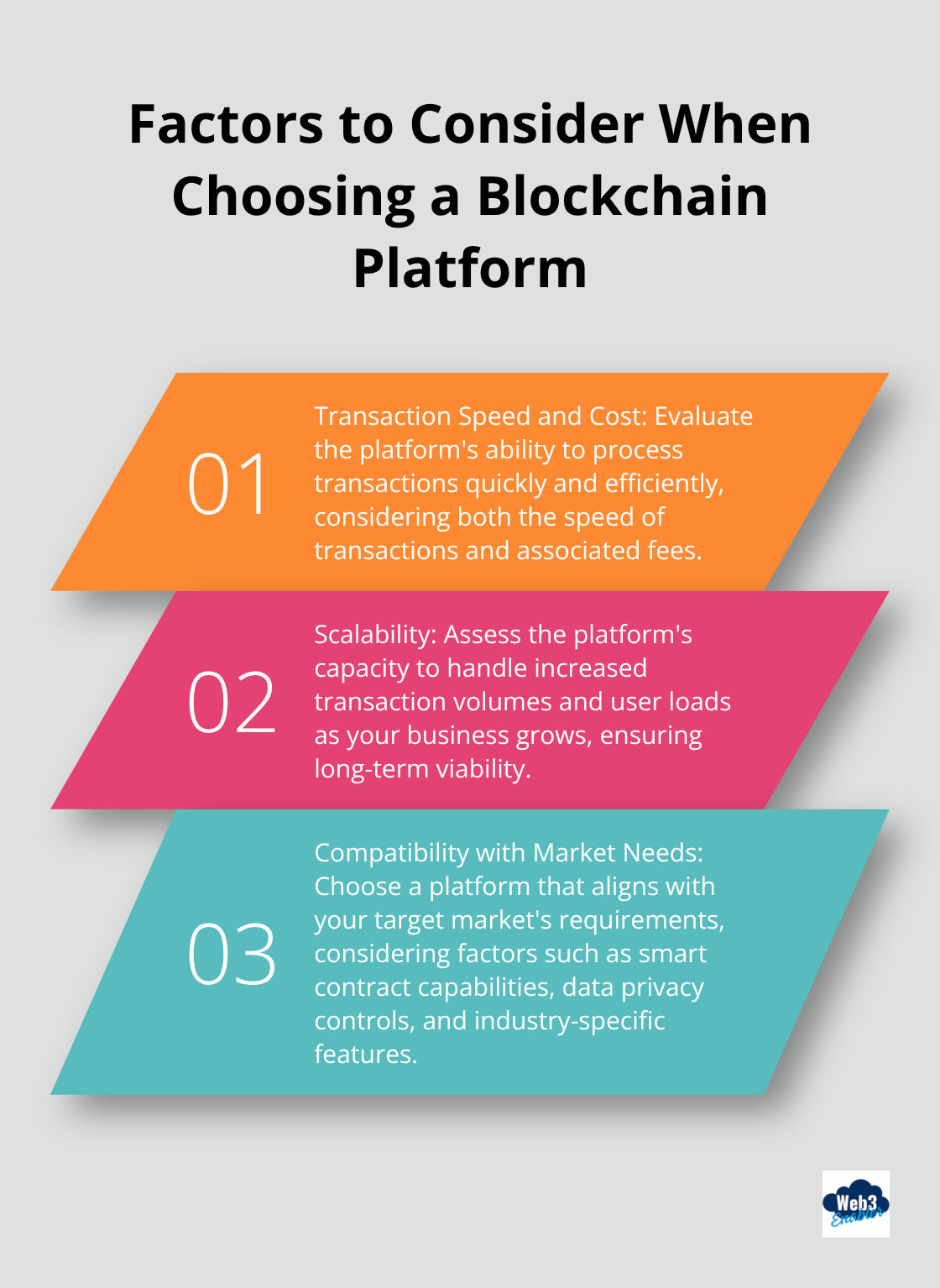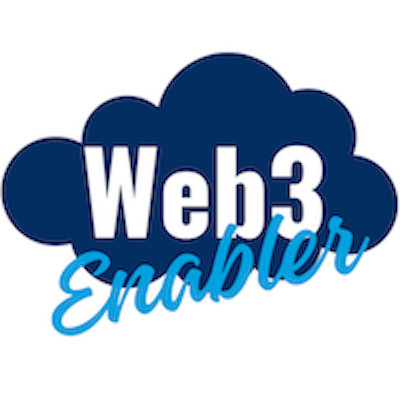
Launching a blockchain business can be a game-changing move in today’s digital landscape. At Web3 Enabler, we’ve seen firsthand how innovative blockchain business ideas are reshaping industries and creating new opportunities.
This guide will walk you through the essential steps to turn your blockchain vision into a thriving reality. From understanding market trends to implementing secure solutions, we’ll cover everything you need to know to set your blockchain venture up for success.
Understanding the Blockchain Landscape
The Decentralized Revolution
Blockchain technology transforms how businesses operate. At Web3 Enabler, we observe this technology’s impact, especially in financial services and enterprise solutions. The core strength of blockchain lies in its decentralized nature. This technology enables secure, transparent, and immutable record-keeping without intermediaries. For businesses, this results in lower costs, higher efficiency, and increased trust among stakeholders. Broader adoption of blockchain networks is leading to more USD and EUR-backed coins, more blockchains, and broader use cases for issuers and acquirers.
Beyond Digital Currencies
While cryptocurrencies like Bitcoin initially popularized blockchain, the technology’s applications now extend far beyond digital currencies. Supply chain management, identity verification, and cross-border payments represent just a few areas where blockchain makes significant progress. For example, IBM’s Food Trust network uses blockchain to trace food products, reducing the time to identify contaminated goods’ sources from days to seconds.
Finding Your Niche
To launch a successful blockchain business, you must identify market gaps where your solution provides unique value. Consider these promising areas:

- Enterprise Blockchain Solutions: Many large corporations seek to integrate blockchain into their existing systems. Web3 Enabler excels in this area, offering seamless blockchain integration for Salesforce users.
- Decentralized Finance (DeFi): The DeFi sector has seen significant growth in recent years. This rapid growth presents numerous opportunities for innovative financial products and services.
- Blockchain-as-a-Service (BaaS): Small and medium-sized enterprises often lack resources to develop their own blockchain solutions. Offering easy-to-implement BaaS products can tap into this underserved market.
Addressing Real-World Problems
Success in the blockchain space requires more than understanding the technology; it demands identifying how it solves real-world problems for your target market. Web3 Enabler focuses on providing practical blockchain solutions that address specific business needs, particularly in the Salesforce ecosystem. Stay attuned to market trends and customer pain points to position your blockchain business for long-term success in this dynamic industry.
As you explore the blockchain landscape and identify your niche, the next step involves developing a solid business plan to turn your vision into reality. Let’s examine how to create a robust strategy for your blockchain venture.
Crafting Your Blockchain Business Blueprint
Pinpoint Your Value Proposition
Your blockchain business must solve a real problem better than existing solutions. Identify your unique selling point and articulate it clearly. Are you reducing costs, increasing transparency, or improving efficiency? Be specific about the benefits your solution offers.
Target the Right Market
Narrow down your target audience. Are you serving enterprises, small businesses, or consumers? Research your potential customers’ pain points and tailor your offering accordingly. For instance, if you’re targeting cross-border businesses, highlight how your blockchain solution can reduce transaction fees and processing times. A McKinsey report offers detailed insights, trends, and analysis on global trade.
Build a Robust Financial Model
Create detailed financial projections for at least the next three years. Include startup costs, operational expenses, and revenue forecasts. Be realistic – blockchain projects often require significant upfront investment. Consider various revenue streams: Will you charge transaction fees, offer subscription services, or use a freemium model? While the details of tokenomics and blockchain incentives are beyond the scope of this article, they are an important part of the financial model for many blockchain companies.
For funding, explore options beyond traditional venture capital. Blockchain-specific accelerators or crypto-focused funds might align better with your vision. Don’t overlook grants from blockchain foundations or government innovation funds.
Assemble Your Dream Team
Your team is critical to your success. Try to mix blockchain expertise with industry-specific knowledge. Key roles to consider include:

The blockchain talent pool is competitive. Offer compelling packages and emphasize your project’s potential impact to attract top talent.
Plan for Scalability
Start small, but outline how you’ll scale in your business plan. Will you expand to new markets? Add features to your core product? Partner with larger enterprises?
With a comprehensive business plan addressing these key areas, you’ll position yourself well to launch and grow your blockchain business. As you finalize your blueprint, the next step involves implementing your blockchain solution effectively. Let’s explore how to choose the right platform and ensure regulatory compliance in the next section.
How to Implement Your Blockchain Solution
Select the Right Blockchain Platform
The choice of blockchain platform can make or break your project. Ethereum stands out for its robust smart contract capabilities, primarily using Solidity for its smart contracts. Alternatives like Binance Smart Chain offer faster transactions and lower fees. For enterprise solutions, platforms such as Hyperledger Fabric or R3 Corda provide enhanced control over data privacy and scalability. Rolling your own L1 or even L2 is a more daunting task, but developing a tokenomics reward model may be a critical part of the business plan.
When choosing a platform, evaluate factors like transaction speed, cost, scalability, and compatibility with your target market’s needs. Industry events and consultations with blockchain experts can provide valuable insights into the latest technological advancements.

Develop and Test Your Product
Start with a minimum viable product (MVP) that addresses your core value proposition. This approach enables early user feedback and quick iterations. Implement rigorous testing, including comprehensive unit tests, integration tests, and security audits.
Consider partnerships with established blockchain security firms for third-party audits. These audits can prevent potential losses and protect your reputation.
Navigate Regulatory Compliance
Regulatory compliance forms a critical aspect of blockchain implementation. The regulatory landscape varies significantly across jurisdictions and involves multiple agencies. In the United States, the SEC oversees securities-related activities, while FinCEN focuses on anti-money laundering (AML) compliance.
Familiarize yourself with relevant regulations such as the Bank Secrecy Act and state-specific money transmitter laws. Implement robust Know Your Customer (KYC) and AML procedures from the start. These processes ensure compliance and build trust with users and potential partners.
Take a proactive approach to compliance. Engage with regulatory bodies early and often. Consider joining industry associations like the Blockchain Association, which advocates for clear and fair regulations in the blockchain space.
Ensure Security Measures
Security should be a top priority in your blockchain implementation. Implement best practices for smart contract development, including formal verification and extensive testing. Use multi-signature wallets for managing funds and implement role-based access control for sensitive operations.
Regular security audits and penetration testing can help identify and address vulnerabilities before they’re exploited. Stay informed about the latest security threats and update your systems accordingly.
Plan for Scalability
While starting small is prudent, plan for future growth from the outset. Design your architecture to handle increased transaction volumes and user loads. Consider implementing layer-2 solutions or sidechains to improve scalability without compromising the security of the main blockchain.
Evaluate cloud-based solutions and distributed systems to ensure your infrastructure can grow with your business. Regular performance testing and optimization will help maintain a smooth user experience as your platform scales.
Final Thoughts
A successful blockchain business launch requires strategic planning, market insight, and innovative thinking. You must research the blockchain landscape, identify market gaps, and develop a solid business plan. The right blockchain platform, robust security measures, and regulatory compliance will set your venture on the path to success.
The blockchain industry changes rapidly, so adaptability is key. You should educate yourself and your team about new trends, technologies, and regulations. This approach will help you adjust your strategy and seize emerging opportunities in the dynamic field of blockchain business ideas.
Web3 Enabler offers advanced blockchain integration solutions, especially for Salesforce users. Their expertise can enhance your implementation process and help you leverage blockchain technology effectively. The potential for innovative blockchain businesses remains vast and largely untapped, presenting opportunities to transform industries and create significant value.







